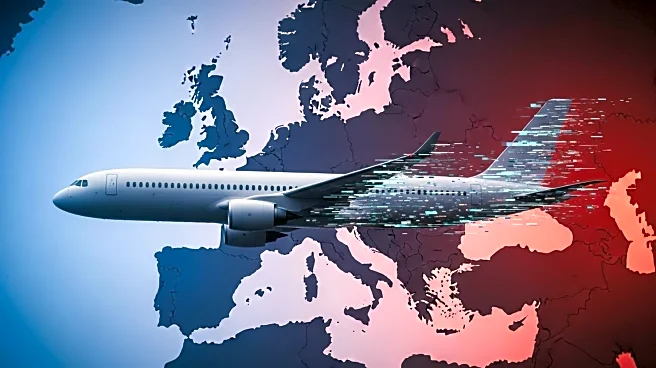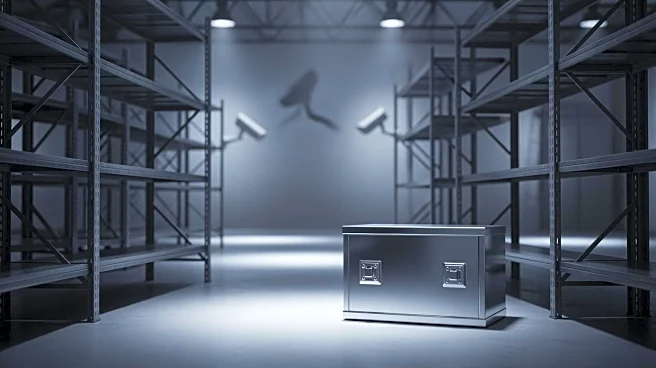What is the story about?
What's Happening?
A cyberattack targeting Collins Aerospace's check-in systems has led to significant flight disruptions across several European airports, including Brussels, Berlin, and London. The attack began late Friday, causing cancellations and delays as airport staff resorted to manual check-in processes. Brussels Airport has been particularly affected, with nearly 140 departing flights canceled for Monday due to the inability of Collins Aerospace to provide a secure version of the check-in system. The cyberattack has impacted electronic systems used for passenger check-in, boarding pass printing, and baggage dispatch, but self-service kiosks remain operational. The European Commission has stated that aviation safety and air traffic control were not compromised, and the incident's origin is under investigation.
Why It's Important?
The cyberattack on Collins Aerospace's systems highlights vulnerabilities in critical infrastructure, particularly in the aviation sector. The disruptions have affected thousands of passengers, leading to economic losses for airlines and airports. This incident underscores the importance of cybersecurity measures in protecting essential services and the potential consequences of cyber threats on international travel and commerce. The attack may prompt increased scrutiny and investment in cybersecurity protocols within the aviation industry to prevent future occurrences. Stakeholders, including airlines, airport authorities, and cybersecurity experts, will need to collaborate to enhance system resilience and safeguard against similar disruptions.
What's Next?
Airports and airlines are working to mitigate the impact of the cyberattack by deploying additional staff and utilizing alternative check-in methods. Collins Aerospace is actively seeking to resolve the issue and restore normal operations. Passengers are advised to check flight statuses and use online check-in options where available. The investigation into the cyberattack's origin continues, with potential involvement from hackers, criminal organizations, or state actors. The aviation industry may face increased pressure to strengthen cybersecurity defenses and develop contingency plans to handle future incidents effectively.















